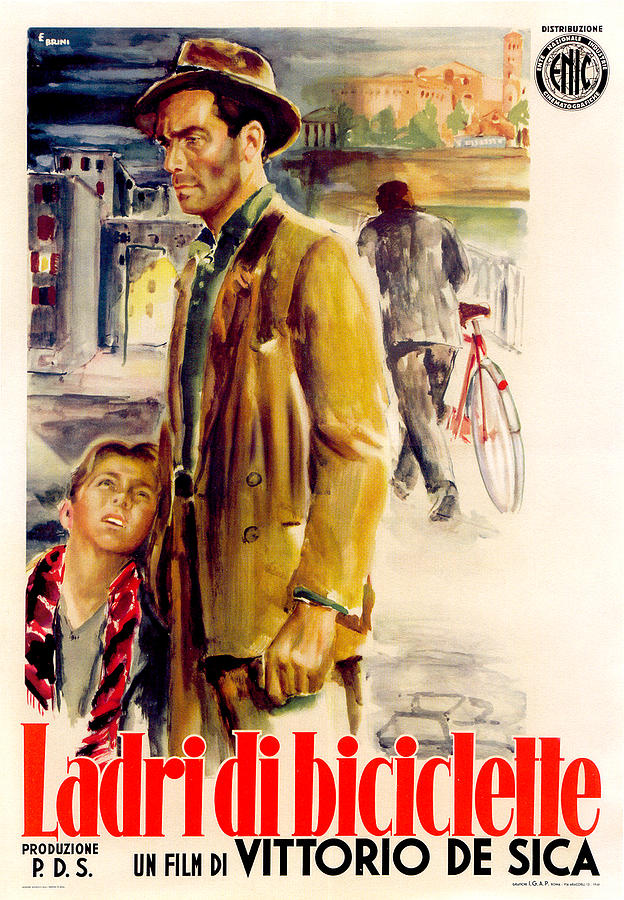
This simple, humanistic melodrama centers on an unemployed laborer, Antonio, and his young son, Bruno, in war devastated Rome. The father finds a job pasting up posters, a job that requires a bicycle. When the bicycle is stolen, it leads to tragic and ironic ending. Panic-stricken at being unable to recover his bicycle, and losing his means of employment, the father is compelled to steal another bicycle, only to be caught and humiliated in front of his son.
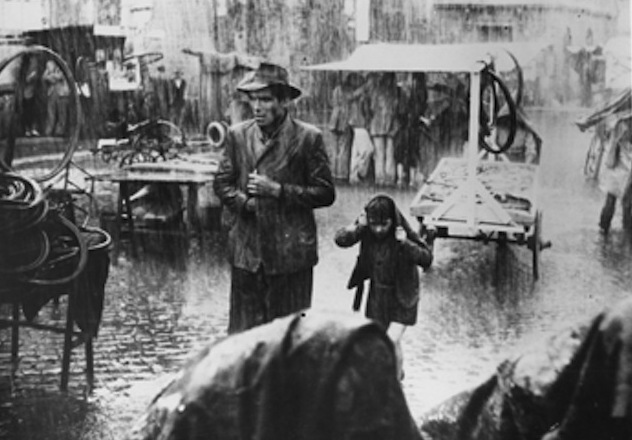
Considered to be one of the most influential works in film history, The Bicycle Thieves is effective as both a topical work, reflecting the living conditions in Italy at the time, and an allegory about the human condition and the universal need for dignity and self worth.
The original Italian title, Ladri di biciclette, translates into English as Bicycle Thieves; there is no definite article and ladri is plural. The poster titles were The Bicycle Thief in the US and The Bicycle Thieves in the UK.
The Bicycle Thief is misleading, because the desperate hero eventually becomes himself a bicycle thief.”
The 2007 Criterion Collection release in North America uses the plural title.
De Sica changed Bartolini’s novel, but retained the title, which used the plural form and referred, in the book, to a post-war culture of rampant thievery and disrespect for civil order, countered by inept police force and indifferent allied occupiers.
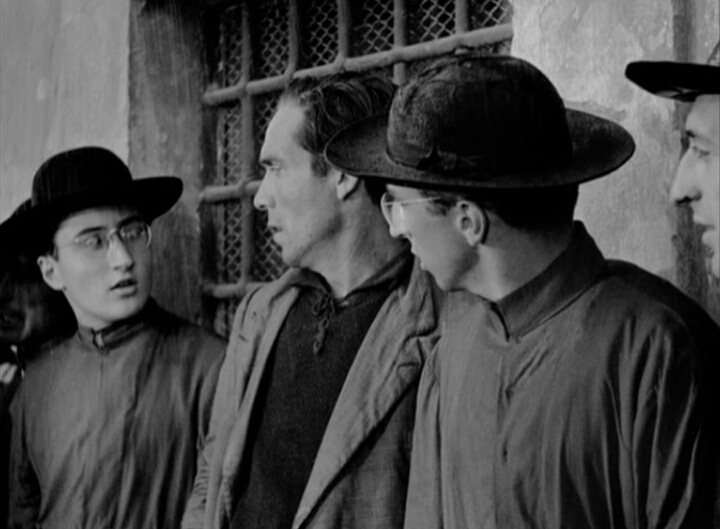
It’s worth noting that in the U.S. the Production Code Administration (PCA) objected to two of the film’s most crucial scenes, one set in a brothel, and the other depicting a boy urinating on the street.

Contrasting Italy’s two great cinema masters, the late French critic Andre Bazin said, “Rossellini’s style is a way of seeing, while De Sica’s is primarily a way of feeling.” For Bazin, De Sica was one of those directors “whose entire talent derives from the love they have for their subject, from their ultimate understanding of it.”
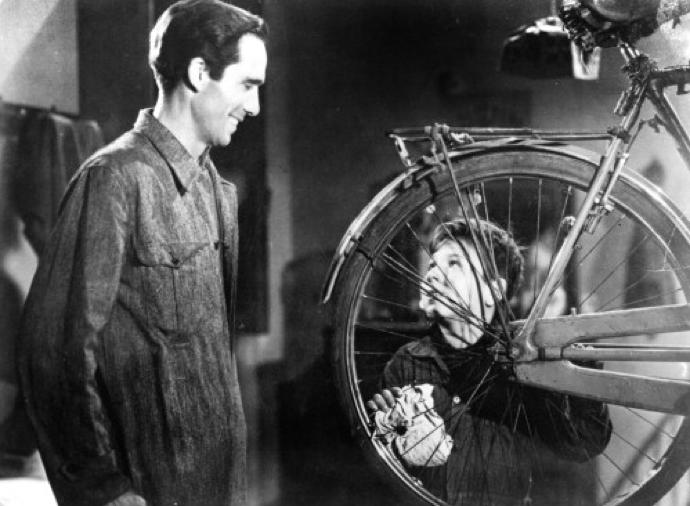
The playwright Arthur Miller once described this masterpiece, “It is as though the soul of man had been filmed.” And, indeed, De Sica’s characters often seem to be lit from within by the tenderness the director feels for each one of them.
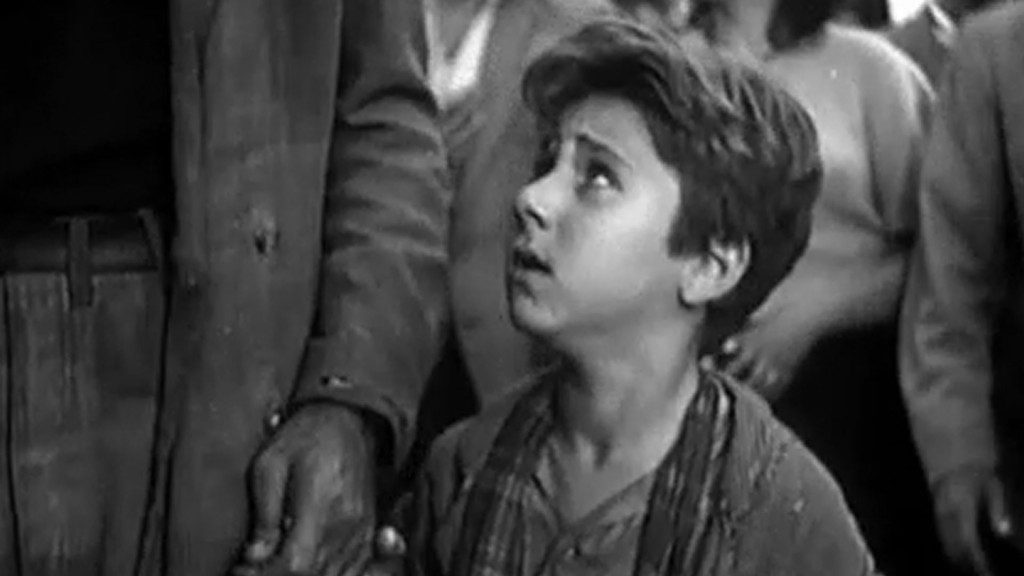
Oscar Alert
Scribe Zavattini was nominated for the Best Screenplay Oscar, but the winner was Joseph L. Mankiewicz for “A Letter to Three Women.” The movie received the 1949 Honorary Oscar for Best Foreign Film; a legit category in that field was established in 1956.
De Sica collaborated with writer Cesare Zavattini on two other great neo-realistic films, “Shoeshine (1946) and “Miracle in Milan” (1950).
De Sica’s “The Garden of the Finzi Continis” won the 1971 Best Foreign Language Film Oscar.
Reference to Hollywood:
Antonio glues a poster of Gilda, starring Rita Hayworth, on the city wall when his bicycle is snatched away.
Cast
Antonio Ricci (Lamberto Maggioana)
Bruno Ricci (Enzo Staiola)
Maria Ricci (Lianella Carell)
Baiocco (Gino Saltamarenda)
Thief (Vittorio Antonucci)
Old Man (Giulio Chiari)
Credits
Directed by Vittorio De Sica
Screenplay by Cesare Zavattini
Photography by Carlo Montuori
Music by Alessandro Ciognini
B/W
Running time: 89 Minutes




